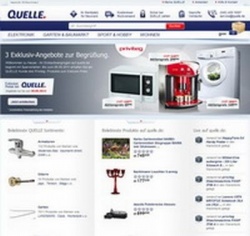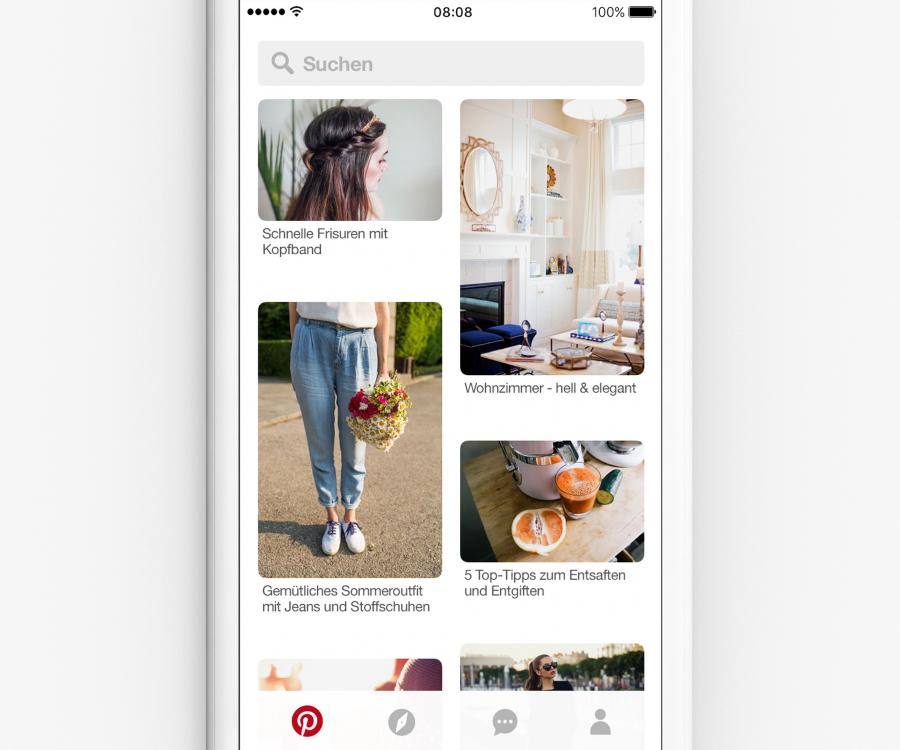m.bahn.de or m.tagesschau.de – the “m” is getting increasingly important on the Internet. There are more and more web pages specifically for mobile devices. Retailers are strongly getting in on the act. It’s practically a must to have apps, while the mobile shop for smartphones is more of an option. M-commerce runs alongside E-commerce. Meanwhile, far from all consumers are actually online. And a lot is also happening in the classic World Wide Web.
More than one-fifth of German citizens don’t use the Internet. The “(N)Onliner-Atlas 2011“quantifies this group at 21.9 percent (www.nonliner-atlas.de). The atlas is not one of those countless “studies“ that are published by agencies or consulting firms and often only have a slim database. TNS Infratest conducted 30,719 interviews with people over the age of 14 for a representative inquiry on behalf of the D21 Initiative. According to this, nonliners are most notably older people or citizens with a lower level of education.
In the lower levels of income, the increase in Internet use turned out to be less than in the previous year. For the first time ever it was at over 60 percent for people with a lower education (elementary school followed by vocational training) and for the fourth consecutive time increased above average. With 80.7 percent, men are more often online than women (68.9 percent), but the women showed a larger increase. At 80.2 percent of onliners, Bremen ranks at number one, followed by Berlin and Baden-Württemberg. Bringing up the rear is Sachsen-Anhalt with 64 percent.
Quelle and Tchibo with new activities
Retailers can still make their mark through competent advice in local stores. However, the “(N)Onliner-Atlas“ also conversely shows: the interesting target groups for many retailers with a sufficient income and propensity to consume are with the utmost probability onliners.
Experienced onliners type in the brand names in the address field of their browser to find a store. Firefox or Internet Explorer automatically convert the terms either into a web address or search requests on Google. That’s why famous brands are worth a lot of money in the online world. And so it comes as no surprise that – a year and a half after the bankruptcy of the catalog company – the name “Quelle” now reemerges.
Since August, the Otto-Versand from Hamburg has its web page www.quelle.de up and running again. For the time being, Quelle will offer merchandise from the areas of technology and home. However, Quelle is not the retailer here, but rather arranges for a marketplace on the Internet. The real retailers are able to showcase their merchandise on there. Quelle takes over the financial processing and collects a fee for the service. Since the bankruptcy of Quelle in November of 2009, Otto bought the trademark rights to the names Quelle, Privileg and other Quelle brands for 65 million Euros. Admittedly, this has no longer anything to do with the old company with the long-standing tradition.
One brand that’s also well-known in Germany is Tchibo. The coffee company with its various non-food assortment of goods has long since had an online shop and also offers travels, flowers and contracts for mobile phones on the web. Since May, Tchibo also blogs on http://blog.tchibo.com). This way, associates and guest authors want to provide the public with information on the multifaceted topics in the world of Tchibo – “from the coffee crop in Brazil all the way to the development of new theme-related merchandise in Hamburg“, it reads in the blog description. For this, Tchibo counts on people: associates turn into brand ambassadors and are supposed to give impressions of their respective specialty area. Presently the blog team is made up of seven authors that work in varying divisions of the company. Another interesting blogger is the Dutch lingerie company Hunkemöller. One trailblazer in the area of brand bloggers in retail is the frozen foods manufacturer Frosta. Its blog (www.frostablog.de) has already been online for years. Many companies don’t last this long and many blogs drop off over time. However, blogs are great for promoting likeability.
Mobile shops: Trailblazer Hagebau
Retailers that offer applications for the current generation of cell phones want to gain likeability, particularly with the younger target group that’s enthusiastic about technology. Apps are available from countless retailers by now, starting with a newsletter with current sales offers all the way to pointers for everyday life.
More and more retailers also broaden their E-commerce activities to smartphones. M-commerce runs alongside E-commerce. Mobile devices require a simpler page design, since the displays of the larger smartphones are also quite small and the data transfer rate is slower than the fast DSL at home.
In the do-it-yourself area, Hagebau is a trailblazer in terms of M-commerce. Hornbach opened its web shop just last year and with 4,000 articles is still rather small. After the failed joint venture obi@otto in 2006, Obi tinkered a long time with its own shop and also went online in 2010. Praktiker (also a German home improvement store like Hornbach) started in Germany in February of 2011 with 7,500 items.
Since 2007 Hagebau collaborates with the catalog company Otto, which brings comprehensive experience in matters of E-commerce to the table. Together they operate the shop www.baumarktdirekt.de, the industry leader in terms of E-commerce. Since August, Baumarkt Direkt GmbH offers an optimized version for mobile devices at m.hagebau.de. Incidentally, you can also surf this address on your PC and try out the mobile feeling.
Aside from the complete assortment of goods, Hagebau’s Mobile Shop includes a branch locator which includes Google maps navigation and opening times, a knowledge community as well as the latest products. No other chain of home improvement stores has gotten this far yet. “A uniform, easy-to-handle display of the website, platform-independent on all smartphones, Tablet PC and other web-ready end devices was important to us“, says Stefan Ebert, Managing Director for Baumarkt Direkt. Some devices work with touch-screens and others with keypads. The image formats vary. Software engineers have to make sure to satisfy all users.
Whether retail really adds more sales with a mobile store still remains to be seen. But if it’s true that the majority of customers will go online in five or six years with mobile devices, it’s a good thing if you are already part of the scene today. Even if the shopping cart has not been filled yet, you distinguish yourself to the consumer as a modern company and gain valuable experiences.
René Schellbach, EuroCIS.com










